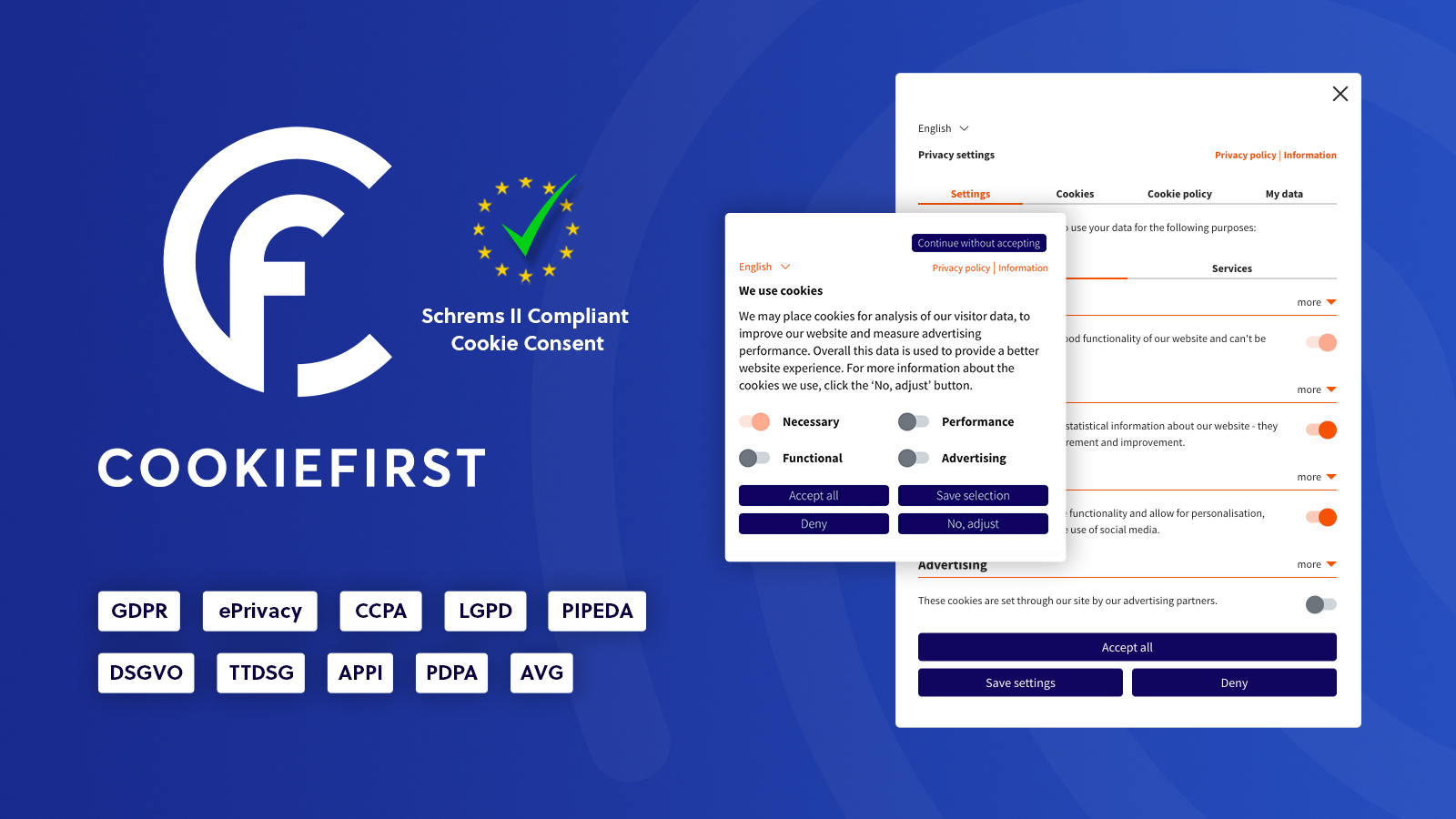What is a cookie policy and why do you need one?
Web browser cookies present a unique challenge for website owners and users alike. They are essential for providing personalization, enabling websites to remember user preferences, and can help improve the customer experience. However, as with any technology that involves collecting data from users, there are potential privacy and security risks. Cookie policies play a big role in ensuring users’ data is handled responsibly and in accordance with the law.

What is a cookie policy and why do you need one?
Cookies, Explained
In digital privacy, the term ‘cookie’ refers to a small text file that is stored on users’ computers as they visit websites. It can contain a variety of information, from preferences and settings to login credentials for secure areas of the website.
Cookies are often used by sites to allow users to log in without re-entering their passwords every time they visit the site. They can also be used to remember preferences like language, font size, or page layout.
If you want to know about cookies, read the article: What are cookies ?
How Do Cookies Work?
A person’s journey with cookies starts when they visit a website for the first time. The website sends a cookie to the person’s computer, which is then stored in the user’s browser.
When that same user returns to the site in future visits, their browser will send back this cookie so that it can be read by the website. This lets the site know who they are, so it can retrieve their login details or preferences from its own database and apply them to that user’s experience.
For example, if you set your preferred language as English when visiting a website, the site will remember this and automatically display its content to you in English the next time you visit.
The Controversy Behind Cookies
While cookies offer a lot of convenience, their use isn’t without controversy. Privacy advocates question the extent to which websites use cookies to track user activity and collect data without their knowledge or consent. (in this case cookie consent)
Third-party cookies are one of the most problematic types, and as such, a main focus of debate. These are cookies that originate from a different domain than the website being visited (e.g., an advertising network). The data they collect can potentially be used to track users across multiple websites and to build a profile of an individual’s online activity without their knowledge.
What Is a Cookie Policy?
A cookie policy is a legal document that outlines how a website uses cookies and similar technologies to collect user data. A cookie policy typically includes information such as what types of cookies are used on the site, what data they collect, how this data can be used, and how users can opt out of having their data collected.
Is a Cookie Policy the Same Thing as a Privacy Policy?
No, a cookie policy is not the same thing as a privacy policy. Although both documents explain how your website collects and uses information from its users, they have different focuses. A cookie policy deals specifically with the use of cookies and similar technologies on your site. It explains what types of cookies you use, as well as how your site stores and uses the data collected through those cookies. A privacy policy can be thought of as the parent document to a cookie policy, as it covers a much wider range of topics, from data collection and storage to how users can control their personal information. It is important to have both a privacy policy and a cookie policy in order to ensure that your website is compliant with applicable laws and regulations.
When Do I Need a Cookie Policy?
There are very few circumstances in which it makes sense to not have a cookie policy. In many cases, it’s mandated by law. For example, the General Data Privacy Regulation (GDPR) stringently regulates websites’ use of tracking technologies while requiring them to acquire vistors’ consent before using cookies, especially tracking cookies. This permission must be fully informed, meaning companies are responsible for outlining the parameters of cookie usage in a comprehensive and understandable way through a cookie policy.
Having a cookie policy is also key for protecting user privacy and ensuring that visitors’ data remains secure. Many websites receive user data from third-party sources, such as marketing companies or analytics tools. A comprehensive cookie policy can help ensure that this data is stored securely and used in accordance with the user’s wishes.
Regardless of what jurisdiction you operate in, there’s always a possibility that your website will be subject to data privacy laws abroad. It’s best to take the initiative of setting one up rather than being sorry later on down the road.
What Should Be Included in My Cookie Policy?
The ideal composition of a cookie policy can vary from region to region, as every data privacy standard has a different set of rules and regulations. With that being said though, there are a few core components that should be included in any cookie policy.
This includes:
- An explanation of what types of cookies the website uses
- An explanation of how these tracking technologies collect personal data from website visitors
- An explanation of what the collected data is used for
- How to opt out of or disable cookies if desired
- A link to the company’s privacy policy
- The date of the most recent update to the cookie policy
Again, the above represents the bare minimum of what a cookie policy should consist of. It’s always possible to make one better by providing more detail and further explanation.
Examples of optional features that can make a cookie policy better:
- Multi-language support
- Easy-to-understand language
- Mobile-friendliness
- The ability to customize the policy based on user preferences
How to Implement a Cookie Policy
One important thing to remember about cookie policies is that they should never be cookie-cutter. Every website is different, as are the regional laws that regulate their use. It’s imperative to invest time
and resources to understand the specific requirements of your company, website, and geographic audience.
Lawyers can help with this process and can provide a more comprehensive analysis, but this usually comes with a cost. If you don’t have the resources to hire a lawyer – or better yet, want something capable of taking care of compliance on its own – try a Consent Management Platform (CMP). CookieFirst offers a comprehensive cookie policy generator.
A CMP is a digital tool that provides a one-stop shop for cookie policy compliance. It will help you design, issue, manage, and monitor your company’s cookie policies as well as provide detailed analytics about user preferences and behavior – all in real-time.
As a leader in the space, CookieFirst has every feature your business could ever need to implement a digital cookie policy, including customizable cookie banner designs that fit your website’s brand and style. Explore the CookieFirst platform’s diverse set of capabilities and start taking control of your digital cookie policies today.


